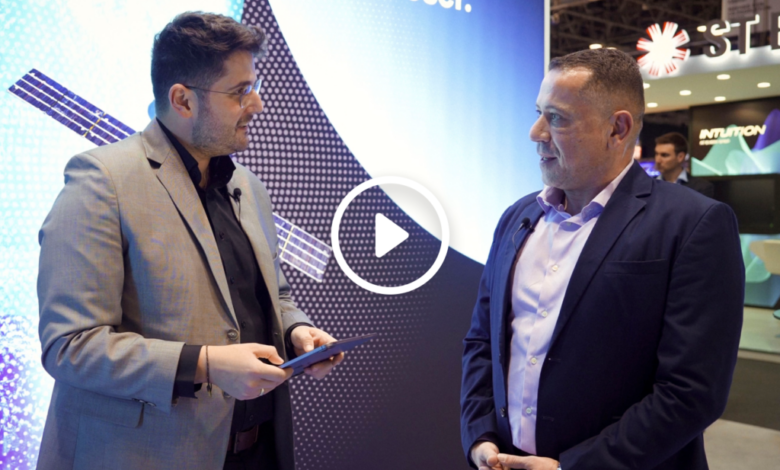Ensuring Resilient and Future-Proof Telecommunication Infrastructure: Insights from Intelsat at CABSAT 2024

In an enlightening discussion with TechAfrica News at CABSAT 2024, the Managing Sales Director for MENA at Intelsat, Saher Abudaqar, shared his extensive knowledge and perspectives on the evolving telecommunications industry. He highlighted Intelsat’s strategic approach to navigating the unique challenges in the Middle East and North Africa (MENA). He emphasized the critical role of satellite technology in building resilient and future-proof telecommunication infrastructure.
This year, Intelsat presented its cutting-edge solutions, focusing on diverse verticals such as cellular backhauling, 5G, and the Internet of Things (IoT). Addressing the unique challenges associated with telecom investments, particularly in high-risk environments, he outlined a strategic approach that emphasizes two critical elements: security and long-term commercial viability. These factors are vital for sustaining investments and ensuring infrastructure resilience.
When you look at investing in telecom infrastructure, you mainly look at two elements: security and long-term commercial viability…..We’ve been in the business for 60 years—this year marks Intel’s 60th anniversary—so we leverage our experience to invest and ensure we get the right partners to invest in sustainable and secure telecom infrastructure, particularly in the Middle East and North Africa.
Saher Abudaqar, Managing Sales Director for MENA, Intelsat
In an era where technology changes rapidly, the focus shifts to future-proofing telecommunications infrastructure. It is essential to anticipate disruptions and stay abreast of technological advancements such as Quantum Computing, 5G, and artificial intelligence (AI). These innovations require telecom infrastructure to be resilient and adaptable to future demands. The need for a multi-faceted approach that combines terrestrial and satellite technologies to build a robust infrastructure capable of withstanding rapid changes and evolving needs was highlighted as a crucial aspect of Intelsat’s forward-looking strategy.
Abudaqar also highlighted compelling examples of how satellite technology is crucial in disaster response and emergencies. Satellite networks often remain functional when terrestrial networks fail, providing essential connectivity during crises.
Terrestrial networks often get damaged first in ground-based disruptions, and recovery is not swift. Satellite connectivity can be deployed quickly to restore connectivity. For example, recent cuts in fiber in the Red Sea underscored the value of satellite connectivity, as operators with satellite integration didn’t feel the impact as much. Satellite connectivity can reach globally from point A to point B without intermediates, providing extra security and resiliency. In rural and semi-rural areas, deploying fiber is costly and time-consuming, whereas satellite can be deployed quickly and cost-effectively.
Saher Abudaqar, Managing Sales Director for MENA, Intelsat
The recommendation for telecom operators is to incorporate satellite technology into their infrastructure as a standby solution to enhance resilience and ensure uninterrupted service. The recent cable disruptions in Africa should serve as a wake-up call for the industry to prioritize backup technologies like satellites to safeguard against potential future disruptions.
By leveraging strategic partnerships, focusing on region-specific needs, and integrating advanced technologies, Intelsat is paving the way for a robust and adaptable telecom landscape.



